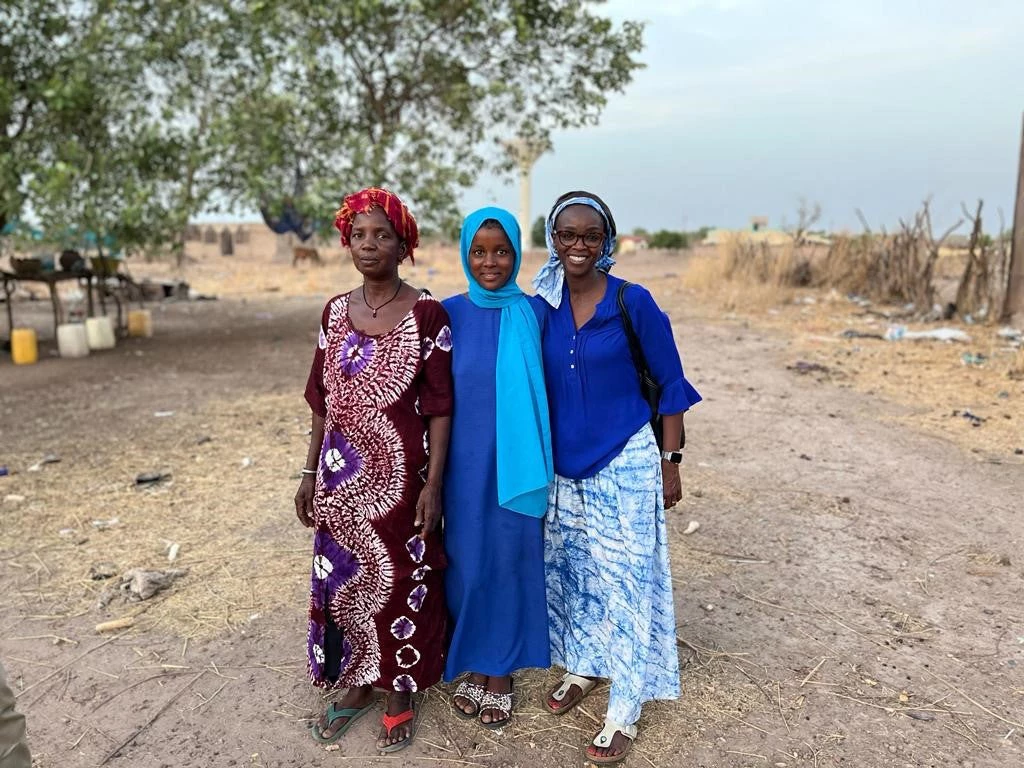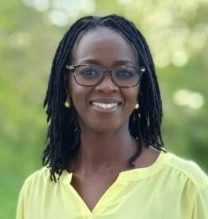I met Mariama in her hometown of Goudiry, in the region of Tambacounda. Situated in the east of Senegal, Tambacounda is one of the country’s most impoverished, marginalized regions, with some of the worst levels of health and education outcomes. The region is hours from Dakar, the capital, where I grew up and had the privilege of enjoying modern amenities, a high-quality education and easily accessible healthcare services.
At 13-years-old, Mariama is the youngest of five children. Her two brothers work with their father, a cattle herder, while her two sisters were both married off young—as is traditional in the community—and they now sell fruit by the roadside. None of the children received a formal education.
Mariama looked set to follow a similar path to her older sisters. In fact, up until recently her daily life was consumed by the responsibilities of fetching water and helping with household chores. The dream of attending school and exploring other opportunities seemed unattainable.
However, Mariama was selected as one of 900 vulnerable girls aged 10-17 in the region to be a part of the government-led Invest in Maternal and Child Health - ISMEA pilot project, which aims, among other things, to promote maternal and adolescent health and empowerment, and is supported by the Global Financing Facility (GFF) and the World Bank. Delivered in partnership with the community, this project is now helping to unlock opportunities and break cycles of generational poverty.
Unlocking potential, changing mindsets
Through this project, Mariama has been provided with a small bursary, dignity kits to improve menstrual hygiene, and has access to safe spaces and community focus groups that discuss reproductive health and educational skills on female genital mutilation and early marriage. She is now learning to read and write and is participating in vocational trainings, which are helping to equip young people with entrepreneurial and practical skills they can use in their professional lives.
Alongside her education, Mariama is training to become a cook and wants to run a restaurant when she’s older. She told me: “I can see now that I have prospects. I want to become someone and help lift my family out of poverty. Only then I will think about marriage.” Before the project, marriage would always have come first.
But it’s not just Mariama’s ambition that has grown. There was also 180 degrees shift in the thinking of Mariama’s father.
Previously, he was firm in his belief that all girls should be married off, and as he faces continued hardship through the effects of the climate crisis and drought on his cattle herding and therefore resources for the family, it would be easy for him to look to put Mariama forward for marriage in exchange of a financial dowry. However, he told me that through the positive changes he’s seen from ISMEA, he is adamant that Mariama’s future and the longer-term benefits of her empowerment are far more important.
This kind of attitudinal shift was unheard of just a few years ago and underscores the value of ISMEA to communities like Mariama’s. While providing sexual and reproductive health services and education is a huge improvement, bringing communities along so that they are truly invested in the futures of women and girls is transformational.
Delivering the future for more women and young girls
“I’m the lucky one. There are many like me who need to benefit from this project,” Mariama told me.
With the evidence of ISMEA’s success so far, Mariama will get her wish. The project is now set to expand across other parts of Senegal this year and in partnership with village health committees enroll over 50,000 more young girls.
As the world continues to face down multiple challenges of debt, COVID-19 recovery and the worsening climate crisis, countries and partners should take heed to the programs that are working as an opportunity for transformation. We see the powerful domino effect that ripples through various aspects of society when we support sexual and reproductive health and rights and women’s empowerment programs that are designed and led by countries. That foundation is essential not only to tackle multiple crises but to build stronger, more inclusive communities and a sustainable future for all.
That’s what drove Côte d’Ivoire, Germany, the Netherlands and the World Bank to launch the “Deliver the Future” campaign to ensure at least 800 million USD in new investment through the GFF partnership. This funding will help crowd in more public and private financing and bring critical interventions at scale and building country systems. But it’s not just about financial commitments: it’s for the world to show that rights and opportunities for women and youth matter!
To receive weekly articles, sign-up here



Join the Conversation